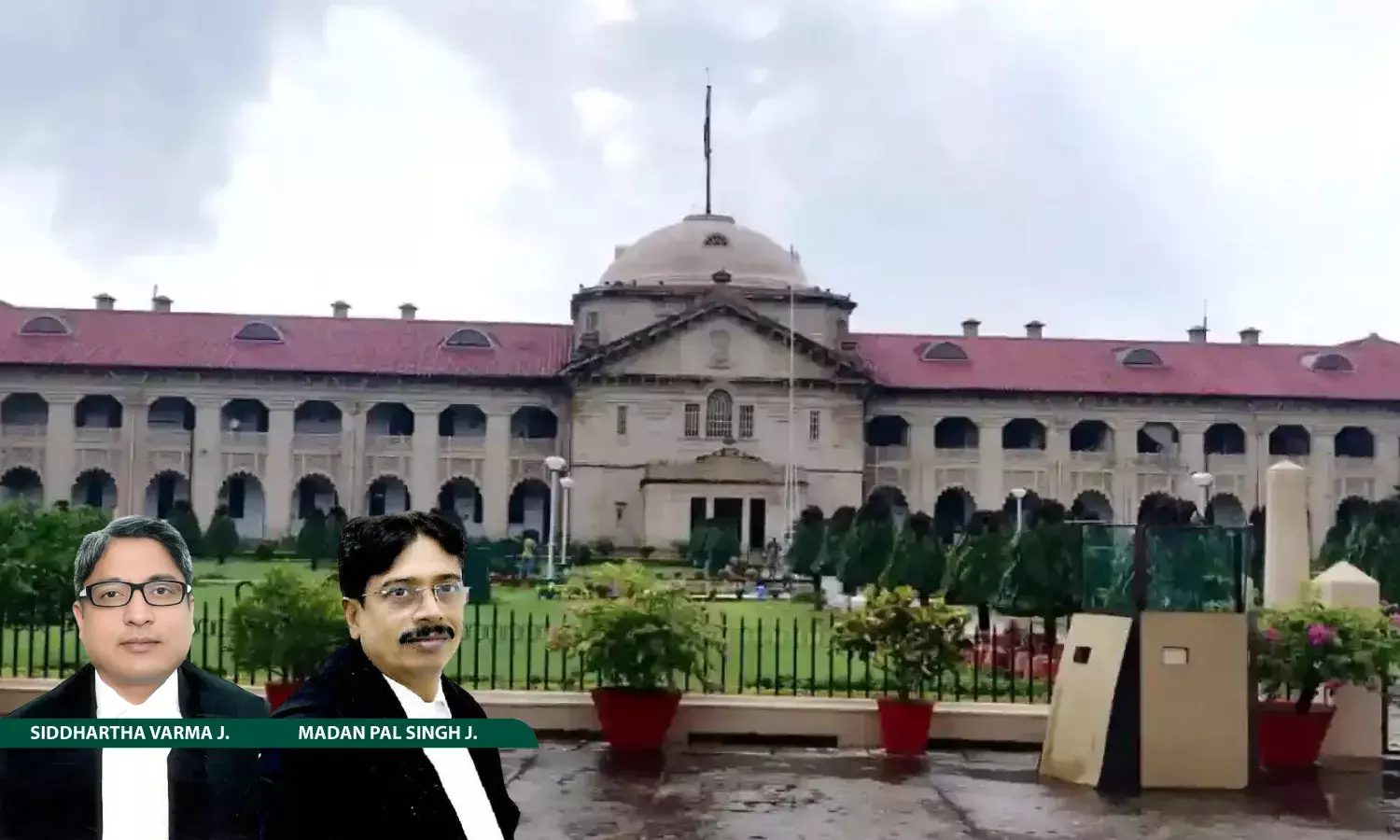Grounds Of Arrest Never Communicated In Writing: Allahabad High Court Declares Arrest Of Accused As Illegal In Chhattisgarh Corruption Case
The Allahabad High Court allowed Criminal Miscellaneous Writ Petition seeking to declare the arrest of the accused as illegal vide the First Information Report (FIR).

Justice Siddhartha Varma, Justice Madan Pal Singh, Allahabad High Court
The Allahabad High Court has declared the arrest of the accused as illegal in Chhattisgarh corruption case, saying that the grounds of arrest were never communicated in writing.
The Court was deciding a Criminal Miscellaneous Writ Petition seeking to declare the arrest of the accused as illegal vide the First Information Report (FIR).
A Division Bench comprising Justice Siddhartha Varma and Justice Madan Pal Singh held, “… we have no hesitation in holding that the grounds of arrest were never communicated in writing at the time of arrest. Even the reasons were not given. The formats of memo of arrest do not satisfy the mandatory conditions of Section 50 of Cr.P.C. (now Section 47 of B.N.S.S.) and Article 22(1) of the Constitution of India. The right to access legal aid is a valuable right of an accused and he must be informed of that right before his arrest.”
Senior Advocate Anoop Trivedi, Advocates Utkarsh Malviya, Varad Nath, and Vikash Walia appeared on behalf of the Petitioner while Additional Advocate General (AAG) Manish Goyal, Advocates Rupak Chaubey, J.K. Upadhyay, and Vikas Sahay appeared on behalf of the Respondents.
Brief Facts
The Petitioner-accused was arrested with regard to a case which was registered by way of an Enforcement Case Information Report (ECIR). This matter was being contested by him along with the other co-accused and the ECIR was challenged. However, an FIR was lodged by the Anti-Corruption Bureau (ACB), Chhattisgarh under Sections 420, 467, 468, 471, and 120-B of the Indian Penal Code, 1860 (IPC) read with Sections 7 and 12 of the Prevention of Corruption Act, 1988 (PC Act) and resultantly, the accused was arrested.
Thereafter, the Chhattisgarh High Court granted him bail and simultaneously, with regard to the events which happened in the same sequence of event, in the State of Uttar Pradesh, an FIR was lodged by the UP Police under Sections 420, 468, 471, 473, 484, and 120-B of the IPC. When the accused was released on bail by the Chhattisgarh High Court, he was then arrested by the UP Police. The Special Judge, PC Act, Meerut took him into judicial custody despite the fact that he had categorically applied before the Special Judge that his arrest was in violation of Articles 19(1) and 22(1) of the Constitution. Hence, he was before the Allahabad High Court, challenging his arrest.
Reasoning
The High Court in view of the above facts, observed, “… if he is unable to engage a counsel then the State must provide him with sufficient aid to get legal assistance. These rights flow from Articles 21, 22(1) and 39A of the Constitution of India. Adequate legal aid to the accused at State expense is also enshrined under Section 304 of Cr.P.C. (now Section 341 of B.N.S.S.).”
The Court noted that no opportunity of hearing was given to the accused for defending his custodial remand and that he was never furnished the grounds of arrest as is mandated under Section 50 of the Criminal Procedure Code, 1973 (CrPC) (now the Section 47 of the BNSS).
“In the instant case, we definitely find that the arrest memo does not contain any column for the ground of the arrest of the petitioner. Thus, there being a definite non-compliance of the mandate of Section 50 of the Cr.P.C. and Article 22(1) of the Constitution of India, we are of the view that the arrest of the petitioner be declared illegal and all subsequent arrest memos be quashed and also the remand orders be set-aside”, it added.
Accordingly, the High Court allowed the Writ Petition and declared the arrest as illegal.
Cause Title- Anwar Dhebar v. State of UP and 2 Others (Neutral Citation: 2025:AHC:93236-DB)


